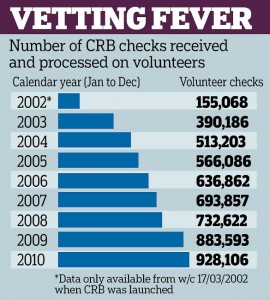Following the introduction of filtering certain convictions and cautions from DBS certificates on 29th May 2013, Employers will not be able to take certain old and minor cautions and convictions into account when making decisions about any individual. HR policies, job specifications and application forms will therefore all need to reflect the filtering changes.
It is important that employers ask the right questions, and that employees give the right (legally accurate) answer. The DBS suggests that Employers include the following paragraph below in their standard application forms:
‘The amendments to the Exceptions Order 1975 (2013) provide that certain spent convictions and cautions are ‘protected’ and are not subject to disclosure to employers, and cannot be taken into account. Guidance and criteria on the filtering of these cautions and convictions can be found at the Disclosure and Barring Service website.’
